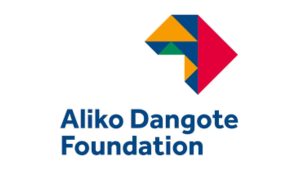
Why DEI Should Be Reconsidered: Lessons from Nigeria’s Federal Character Principle
In recent years, Diversity, Equity, and Inclusion (DEI) initiatives have gained momentum across the globe, with advocates arguing that they foster fairness and representation. While these policies aim to correct historical disadvantages, their real-world implementation has often led to unintended consequences—favoring identity over merit, inefficiency over competence, and division over unity.
Nigeria’s experience with a similar framework, the Federal Character Principle, provides a compelling case study on the risks of prioritizing representation over merit-based selection. It serves as a cautionary tale that global DEI policies should carefully consider.
The Federal Character Principle: A Flawed Precursor to DEI
Enshrined in Nigeria’s 1999 Constitution, the Federal Character Principle was designed to ensure fair distribution of government appointments, employment, and educational opportunities across the country’s diverse ethnic groups. The intent was to prevent any one group from dominating national institutions. However, decades later, this well-intentioned policy has produced significant challenges:
- Erosion of Meritocracy – Government institutions often prioritize an applicant’s state of origin over their qualifications, leading to a bloated and inefficient public sector struggling to deliver quality governance and services.
- Encouragement of Mediocrity – Favoring regional representation over competence has institutionalized mediocrity, forcing many skilled Nigerians to seek opportunities abroad, contributing to brain drain and stifling innovation in key sectors.
- Deepening of Ethnic and Regional Divides – Instead of fostering national unity, the Federal Character Principle has reinforced ethnic consciousness, leading individuals to see jobs and appointments as tribal entitlements rather than achievements based on competence.
Global Parallels: How DEI Mirrors Nigeria’s Experience
The fundamental principles of DEI—mandatory diversity quotas, preferential hiring based on identity, and equity-driven outcomes—closely resemble Nigeria’s Federal Character Principle. Across corporate and academic institutions in Western nations, similar results have emerged:
- Declining Institutional Standards – Some universities and corporations have adjusted admission and hiring benchmarks to meet diversity quotas, raising concerns about merit and performance.
- Unintended Exclusion of Qualified Candidates – In the pursuit of diversity, highly qualified individuals may be overlooked in favor of less experienced candidates, creating resentment and affecting workplace efficiency.
- Division Instead of Inclusion – Rather than fostering true inclusion, DEI initiatives sometimes promote identity politics, where individuals are defined primarily by race, gender, or ethnicity rather than by their contributions and competencies.
A Call for a Merit-Based Future
Nigeria’s experience with the Federal Character Principle serves as a clear warning: when identity-based policies override merit, national progress suffers. While diversity and inclusion are important, they must not come at the cost of excellence and competence.
Rather than relying on quotas, institutions—whether in government, academia, or corporate settings—should focus on creating equal access to opportunities based on merit. True diversity is not achieved through artificial mandates but by fostering environments where all individuals, regardless of background, can succeed based on their skills and efforts. By shifting toward a merit-based approach, we can build stronger, more competitive institutions that benefit everyone.









